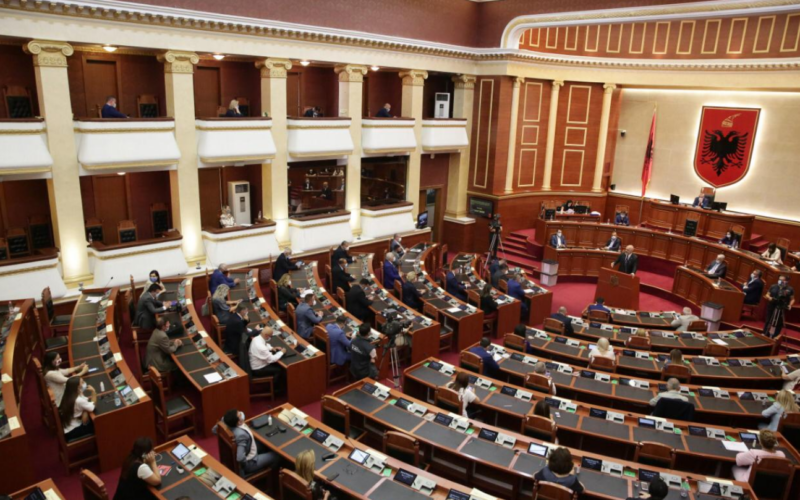Italy’s ambitious plan to send asylum seekers to Albania for processing has encountered a temporary setback as the Albanian constitutional court orders a hearing to assess whether the deal violates Albania’s constitution. The agreement, signed by Italian Prime Minister Giorgia Meloni and Albanian counterpart Edi Rama, involves the construction of two processing centers in northern Albania to handle 36,000 individuals annually seeking entry into Italy. This move, aimed at managing migration flows, has faced criticism from opposition parties in both nations and human rights groups.
The Italian-Albanian agreement outlines the construction of two processing centers near the north-eastern port of Shengjin, funded by the Italian government. These centers would detain around 3,000 people monthly who attempted to reach Italy by sea. The facilities would operate under Italian law, managed by Italian staff with certain legal immunities in Albania. After assessing asylum claims, Italy would decide whether to resettle individuals in Italy or deport them. Albanian police would be responsible for security outside the centers.
Two petitions from the Albanian opposition contend that the agreement jeopardizes asylum seekers’ constitutional and international law protections. Critics argue that the deal implies Albania relinquishing sovereignty over the designated sites, and Prime Minister Rama should have obtained President Bajram Begaj’s approval for the implementation. The constitutional court has ruled that these appeals warrant further hearings, automatically suspending the ratification of the law. Despite the expectation that the plan would be approved by lawmakers, the court’s decision has cast uncertainty on its timeline.
The Italian-Albanian arrangement draws parallels with the UK’s criticized proposal to deport asylum seekers to Rwanda. Both plans face legal challenges and opposition from human rights groups. The British scheme, despite significant financial support to Rwanda, has encountered legal obstacles, and as of now, no asylum seekers have been deported from the UK to Rwanda.
The suspension of Italy’s asylum seeker plan by the Albanian constitutional court adds complexity to the ongoing debate surrounding migration management. The court’s decision raises questions about the compliance of the agreement with Albania’s constitutional principles. As the hearing approaches, the fate of the Italian-Albanian deal remains uncertain, impacting the timeline for the operationalization of the processing centers and challenging the assertions made by Prime Minister Meloni.
The temporary suspension imposed by the Albanian constitutional court introduces a new layer of uncertainty to Italy’s attempt to collaborate with Albania in managing asylum seekers. The upcoming hearing will be crucial in determining whether the deal aligns with Albania’s constitutional framework. As these legal and political developments unfold, the fate of the agreement and its implications for migration policies between Italy and Albania remain at the forefront of international scrutiny.








